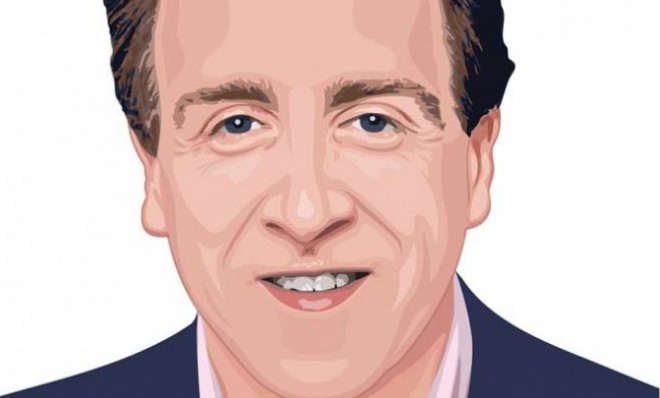Maybe Congress really is a reflection of us?
The extent to which Americans believe in conspiracy theories is frightening


A free daily email with the biggest news stories of the day – and the best features from TheWeek.com
You are now subscribed
Your newsletter sign-up was successful
While a wide majority of Americans look at Congress with disdain, sometimes it’s important to look at the context. Our lawmakers were elected by voters after all, who according to a new Public Policy Polling survey released this week, don’t always see the world very clearly.
A sampling of the more alarming results:
• 6% of voters believe Osama bin Laden is still alive.
The Week
Escape your echo chamber. Get the facts behind the news, plus analysis from multiple perspectives.

Sign up for The Week's Free Newsletters
From our morning news briefing to a weekly Good News Newsletter, get the best of The Week delivered directly to your inbox.
From our morning news briefing to a weekly Good News Newsletter, get the best of The Week delivered directly to your inbox.
• 21% of voters say a UFO crashed in Roswell, New Mexico in 1947 and the federal government covered it up.
• 28% of voters believe secretive power elite with a globalist agenda is conspiring to eventually rule the world through an authoritarian world government, or New World Order.
• 28% of voters believe Saddam Hussein was involved in the 9/11 terrorist attacks.
• 7% of voters think the Apollo moon landing was faked.
A free daily email with the biggest news stories of the day – and the best features from TheWeek.com
• 13% of voters think President Obama is the anti-Christ.
• 14% of voters say the CIA was instrumental in creating the crack cocaine epidemic in the inner cities in the 1980’s.
• 9% of voters think the government adds fluoride to our water supply for sinister reasons.
• 51% of voters say a larger conspiracy was at work in John F. Kennedy's assassination, while just 25% say Lee Harvery Oswald acted alone.
• 15% of voters say the government or the media adds mind-controlling technology to TV broadcast signals.
• 5% believe exhaust seen in the sky behind airplanes is actually chemicals sprayed by the government for sinister reasons.
• 15% of voters think the medical industry and the pharmaceutical industry “invent” new diseases to make money.
• 11% of voters believe the US government allowed 9/11 to happen.
So the next time you scoff at something dumb said by a lawmaker on Capitol Hill, keep in mind how they got there.
Taegan D. Goddard is the founder of Political Wire, one of the earliest and most influential political websites. He also runs Wonk Wire and the Political Dictionary. Goddard spent more than a decade as managing director and COO of a prominent investment firm in New York City. Previously, he was a policy adviser to a U.S. senator and governor. Goddard is also co-author of You Won — Now What? (Scribner, 1998), a political management book hailed by prominent journalists and politicians from both parties. Goddard's essays on politics and public policy have appeared in dozens of newspapers across the country, including The Washington Post, USA Today, Boston Globe, San Francisco Chronicle, Chicago Tribune, Philadelphia Inquirer, and Christian Science Monitor. Goddard earned degrees from Vassar College and Harvard University. He lives in New York with his wife and three sons.
-
 What to know before filing your own taxes for the first time
What to know before filing your own taxes for the first timethe explainer Tackle this financial milestone with confidence
-
 The biggest box office flops of the 21st century
The biggest box office flops of the 21st centuryin depth Unnecessary remakes and turgid, expensive CGI-fests highlight this list of these most notorious box-office losers
-
 What are the best investments for beginners?
What are the best investments for beginners?The Explainer Stocks and ETFs and bonds, oh my
-
 The billionaires’ wealth tax: a catastrophe for California?
The billionaires’ wealth tax: a catastrophe for California?Talking Point Peter Thiel and Larry Page preparing to change state residency
-
 Bari Weiss’ ‘60 Minutes’ scandal is about more than one report
Bari Weiss’ ‘60 Minutes’ scandal is about more than one reportIN THE SPOTLIGHT By blocking an approved segment on a controversial prison holding US deportees in El Salvador, the editor-in-chief of CBS News has become the main story
-
 Has Zohran Mamdani shown the Democrats how to win again?
Has Zohran Mamdani shown the Democrats how to win again?Today’s Big Question New York City mayoral election touted as victory for left-wing populists but moderate centrist wins elsewhere present more complex path for Democratic Party
-
 Millions turn out for anti-Trump ‘No Kings’ rallies
Millions turn out for anti-Trump ‘No Kings’ ralliesSpeed Read An estimated 7 million people participated, 2 million more than at the first ‘No Kings’ protest in June
-
 Ghislaine Maxwell: angling for a Trump pardon
Ghislaine Maxwell: angling for a Trump pardonTalking Point Convicted sex trafficker's testimony could shed new light on president's links to Jeffrey Epstein
-
 The last words and final moments of 40 presidents
The last words and final moments of 40 presidentsThe Explainer Some are eloquent quotes worthy of the holders of the highest office in the nation, and others... aren't
-
 The JFK files: the truth at last?
The JFK files: the truth at last?In The Spotlight More than 64,000 previously classified documents relating the 1963 assassination of John F. Kennedy have been released by the Trump administration
-
 'Seriously, not literally': how should the world take Donald Trump?
'Seriously, not literally': how should the world take Donald Trump?Today's big question White House rhetoric and reality look likely to become increasingly blurred
